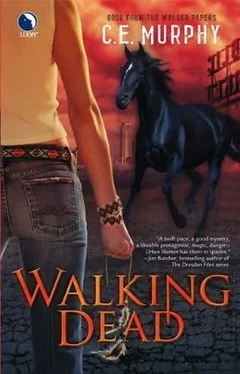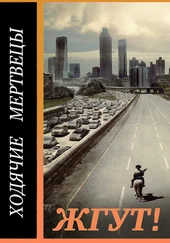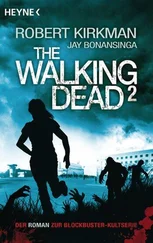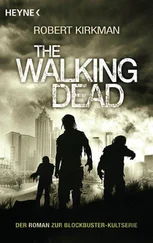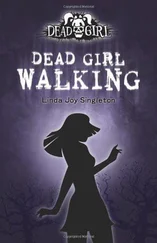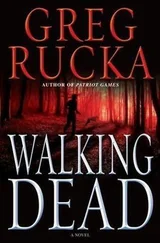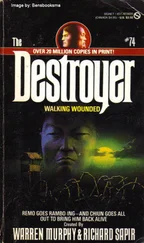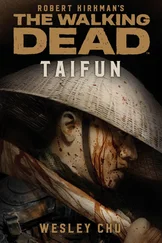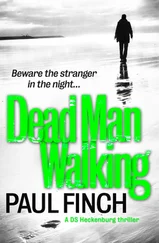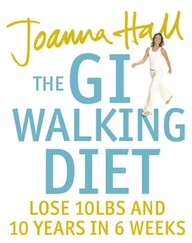They screamed because smoky-black monsters were trying to pull their freshly born souls from their bodies.
The monsters reminded me of the banshee, narrow things cloaked in death shrouds that did nothing to hide their emaciated form. Bony fingers clutched each of their heads, the Sight showing me how bruises were forming beneath the vicious grips. Each of the things—hell, for all I knew they were banshees, if not the specific hatchet-faced Blade I’d faced once before—each of the banshees brought its hooded face to its victim’s, offering a bleak kiss that ripped at their very essence. They made me think of gas masks working in reverse, sucking up to the mouth and nose and forcing poison in instead of filtering it out. And Archie Redding, who had spent half a dozen lifetimes trying to bring his family back from the dead, was held by two more of the banshees, whose faces split in screaming laughter as he struggled to free himself and join his suffering wife and children.
Ida Redding hit the ground, writhing and clutching at her face. Scrapes appeared, only some of them from her own hands. The girls, especially the littlest, had less fight in them. The little one’s aura sparked too much fear and confusion to understand what was happening at all: her breath simply wasn’t there, and it didn’t make sense.
It made a terrible sense to me.
“Banshees feed the Master,” I said so quietly I wasn’t sure my voice carried beyond my own ears. I felt detached from myself, moving with purpose but watching myself from the outside. Time had slowed down; it did that a lot in critical moments. “The Blade performed ritual murders under the winter moons, only we disrupted that, so the Master’s got to be awfully hungry. This must be the next best thing, or maybe even better than the rituals. These are brand-new reborn souls, too weak to fight and totally innocent. I bet pure souls taste good.” The banshees, the Master, weren’t like the zombies, trying to snatch bits of memory from the living. They just wanted the essence of a human soul, a tender, sweet tidbit to snack on. “The Master’s one nasty son of a bitch.”
Morrison, predictably, said, “What the hell’s the Master?”
To my surprise, I could smile, a soft gentle little thing. I turned it on Morrison in lieu of the hug I wanted to give him, just for being himself. “I think I can save them. Sorry, Morrison. Maybe you’ll forgive me someday.”
I crashed back into my body, no longer feeling distant or as though time was stretching, and ran like hell for the cauldron.
Two steps away from it, Billy Holliday caught my shoulder, spun me around and cold-cocked me.
Once upon a time getting hit in the jaw by a guy Billy’s size would’ve laid me out. As it was, I still whipped around in a circle and staggered a few steps in the wrong direction while startled magic tried to steady my inner ear and reduce the ache in my jaw.
That was all the time it took for Billy to scramble up the aluminum stepladder leaning against the cauldron and dive in.
I said, “Oh, no, you fucking don’t,” and went in after him.
I lay on my back in tall grass, a straw hat knocked forward over my eyes and a hayseed, I kid you not, a hayseed, stuck between my teeth so I had something to gnaw on. Wind hissed around me, low and quiet and comforting as bees buzzed through it. I didn’t have to look to know I wore my favorite oil-stained jeans and a tank top, or that heavy boots were on my feet. I was so comfortable that pushing the hat back and rising up on my elbows to look around took some convincing.
The overgrown dry grass I lay in got shorter a few yards away from me, flattening out into a big rambling lawn that ran up against an old farmhouse. It looked ramshackle at first glance, but a second look told me it was just old, the boards faded to a non-descript gray and curtains in the windows washed free of color, but left softer than silk. It was probably a hundred years old, and for all that it showed its age, it’d been kept in good repair through all the intervening years. I liked it instinctively: it was a home, comforting and inviting.
A shadow passed through my sunshine and I squinted at the sky. Non-threatening thick white clouds puffed over the sun and moved on, letting summer heat spill down to warm my grass bed and the house’s dark shingles alike. I could smell tar on the roof and fruit from distant apple trees. A hand-built fence, grayed by time, marked off boundaries that only the handful of cows and horses beyond them might pay heed to. One of them worked its way to a stream and poked its nose in, slurping loudly enough to hear over the wind and the distant sound of laughter. There was no sound of traffic, no evidence of the peaceable holding being disturbed by anything from the outside.
It felt a lot like heaven.
Not my heaven, maybe. Mine would have a falling-down barn somewhere visible on the property: a place where I might find Petite, or a cousin to her, and where I could work on her for all the long hot daylight hours. But this was somebody’s idyllic world, and if this is what people got for climbing into the cauldron, I might think a deathtime of servitude to a dark master would be worth it, too.
I got up, grateful for the hat that turned sunlight into speckles instead of a blinding wall, and discarded my grass stem for another one to nibble on as I followed the laughter. Tir na nOg had brought laughter forth from the trees and earth itself, but I thought I was hearing ordinary kids. Whoever’s heaven this was, it didn’t seem like the kind of place peopled by the ethereal. When I got close enough to the house, I shouted, “Hello?” and had a sudden bemused hope that I wasn’t about to be greeted by a shotgun and a smile.
Three kids burst around the corner of the house instead, racing pell-mell after one another with the abandon of youth. The oldest was a boy of maybe fifteen, keeping well in the lead, with a girl of around eleven behind him and another boy, about eight years old, giving valiant chase to them both.
I knew the little girl.
She was the ghostly image who’d turned up in my garden a couple of days ago, so brief and unformed I hadn’t recognized her when I’d gotten a clearer look in the Dead Zone. It was the same hint of a ghost I’d seen hanging back and staying at Billy’s side during Sonata’s séance. She was all braided pigtails and smiles, with big brown eyes and strong fast legs, and as I watched, she gave up any hope of catching the older boy by turning to bellow, “Come on, Billy, we’ve almost got him!”
All the pieces fell into place.
Her name was Caroline Holliday, and she was Billy’s older sister. She’d died in a drowning accident when she was eleven, probably in the same creek I could hear burbling in the background. The red-cheeked little boy chasing her was Billy, and the older boy leading the game of tag was their officious big brother, Bradley, whom I’d met a few months earlier and had utterly failed to get along with.
This was Caroline’s heaven, or maybe Billy’s: a place and time when his family were all together, Caro safe and alive, Brad less uptight than the man he’d grown into being.
Brad skidded to a stop when he saw me, then spread his arms, keeping his younger siblings safe behind him as he thrust out his jaw in challenge. “Who’re you? What’re you doing here?”
“I came looking for Billy,” I said with maybe a little too much honesty. “He’s a friend of mine.”
“You’re a grown-up,” Brad said suspiciously. “And I don’t know you. How can you be his friend?”
Caroline crashed into Brad’s back, and Billy caught up with both of them, smacking Brad’s outstretched hand to yell, “You’re it!” in triumph. Then he grabbed that same hand and stared at me. “Who’s that?”
Читать дальше
Конец ознакомительного отрывка
Купить книгу
